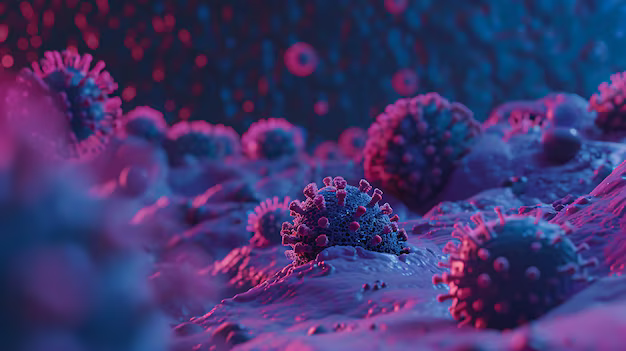
Researchers from Ikerbasque and CIC bioGUNE – a member of BRTA – have collaborated on a study revealing patterns of adeno-associated viruses (AAVs) in the Basque population, marking a crucial advancement in gene therapy. Led by Nicola G.A. Abrescia, Ikerbasque Professor and leader of the Virus Structural and Cellular Biology Group at CIC bioGUNE, the study, published in Scientific Reports of the Nature journal, illustrates the distribution of AAVs and their potential impact on effective gene therapies.
AAVs are increasingly used as vectors for gene therapies aimed at treating various genetic disorders. However, a significant challenge arises due to pre-existing neutralizing antibodies in patients, which can reduce treatment efficacy. To address this barrier, Nicola G.A. Abrescia and his team provide an exhaustive profile of AAV prevalence specifically in the Basque region.
The study reveals compelling findings. It shows that AAV3 predominates among Basque individuals, while AAV9 has the lowest prevalence. Notably, less than half of the residents possess antibodies against AAV4, AAV6, and AAV9, highlighting the need for personalized gene therapies in this distinct demographic group.
The unique genetic and cultural context of the Basque Country offers a valuable perspective compared to other European populations, aligning the prevalence of AAVs with those in Western European countries. This knowledge enhances the development of targeted gene therapies, crucial for developing effective medical treatments.
As gene therapy gains prominence in treating genetic disorders, identifying prevalent AAV strains in specific populations helps design optimized treatments and supports academic research. This study represents a significant advancement in this evolving field, emphasizing the variability in virus types that underpin personalized medical approaches.
Moreover, considering the evolution of global migration trends, it is imperative to keep seroprevalence data updated. Continuous monitoring and research are essential to ensure equitable access to effective gene therapies across diverse populations worldwide.
Bibliographic reference
Miguel Navarro‑Oliveros, Ander Vidaurrazaga, Gabriel Soares Guerra, Donatello Castellana, Nieves Embade, Oscar Millet, Urko M. Marigorta & Nicola G.A. Abrescia. Seroprevalence of adeno‑associated virus types 1, 2, 3, 4, 5, 6, 8, and 9 in a Basque cohort of healthy donors. Scientific Reports. DOI: 10.1038/s41598-024-66546-4.
.png)
